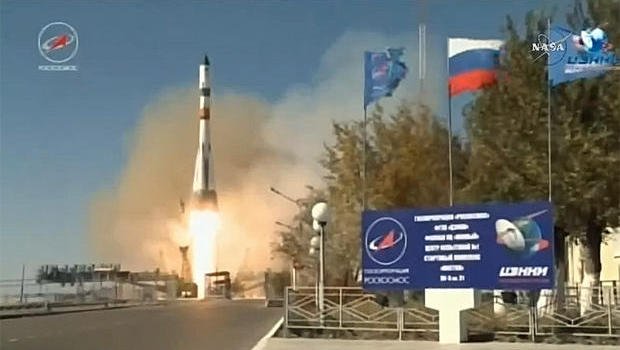A Russian Progress payload dispatch launched from Kazakhstan Saturday and set off after the International Space Station (ISS) to convey 2.9 tons of fuel, water and team supplies.
The dispatch was initially made arrangements for Thursday, however a very late glitch averted fundamental motor start and the flight was prematurely ended pending a survey. The issue was immediately amended and the promoter was cleared for a moment attempt Saturday.
This time around it was no issues, and the Progress took off from the Baikonur Cosmodrome at 4:46:53 a.m. EDT (GMT-4; 2:46 p.m. neighborhood time), climbing ceaselessly toward the upper east as Earth’s turn conveyed the cushion into the plane of the space station’s circle.
The payload create, stacked with 1,940 pounds of charge, 296 pounds of water, 2,976 pounds of group supplies, save parts and other apparatus, got through its starting fit as a fiddle and was discharged to fly alone eight minutes and 46 seconds after liftoff.
- In the event that all goes well, the Progress will fly a two-day 34-circle meet, making up for lost time with the space station early Monday.
- Docking at the Russian Pirs module is normal around 7:10 a.m.
- In light of the dispatch delay, plans to test a quickened two-circle meet were put on hold, discounted for Saturday’s flight because of the changing position of the station in its circle.
- The two-day meet method used to be standard for both unpiloted Progress and Soyuz team ships.
- Be that as it may, in the course of recent years, the Russians executed a four-circle six-hour meet, decreasing the time teams spent cooped up in the confined ship make.
Presently, Russian flight organizers would like to actualize a much quicker, two-circle meet when orbital mechanics grants, testing it with an unpiloted Progress flight before clearing a Soyuz team for a similar system. Be that as it may, Saturday’s dispatch denoted the last Progress flight of the year, so the test now will be pushed into 2018.
Anton Shkaplerov, a veteran cosmonaut who will order a December flight to the station, said in a meeting Wednesday that “the quicker you travel to the ISS the better.”
Russian cargo ship blasts off
“My first flight to the ISS took two days and the second flight to the ISS took six hours,” he stated, talking through an interpreter. “The Soyuz and ensuing vehicles are fairly little, they have restricted space, there is no hot sustenance, you have no different team quarters and different comforts you can discover on the ISS.
“So it’s greatly improved to touch base on board the ISS quicker, go to your team quarters, put on something else, remove your spacesuit.”
Shkaplerov and his two crewmates, NASA space traveler Scott Tingle and Japanese flier Norishige Kanai, will fly a 34-circle meet.
“Our unique dispatch date was Dec. 27 and we were required to take after the short (4-circle) meet profile,” he said. “Since Dec. 25 is a major occasion – it’s Christmas in the U.S. what’s more, practically all of Europe, individuals need to invest energy with their families, as of late they moved our dispatch date to one side by 10 days.
“For that dispatch date, the ballistic numbers don’t adjust for us to have a short meet profile so we’ll burn through two days traveling to the ISS. In any case, we wouldn’t fret, since that builds our addition span by 10 days!”
Source: kbzk.com






